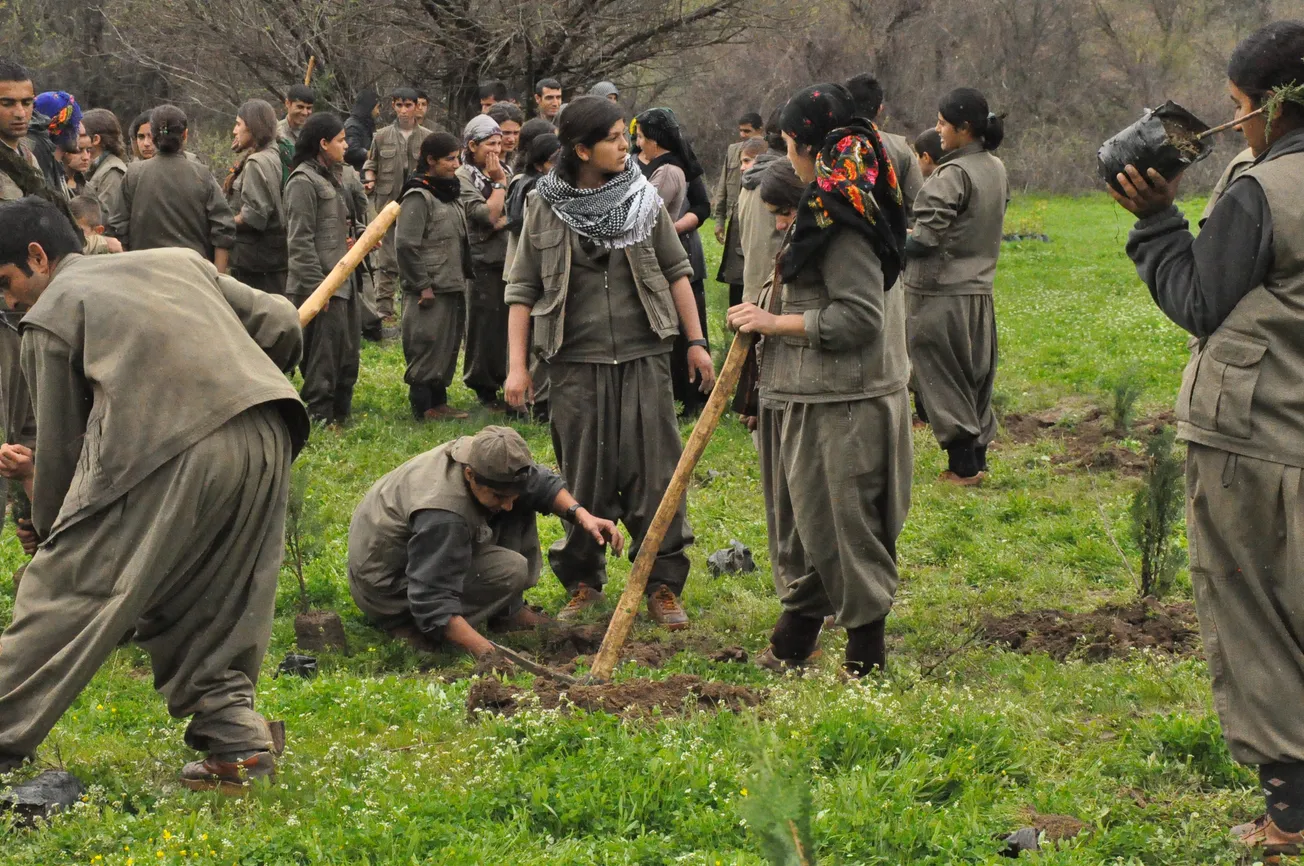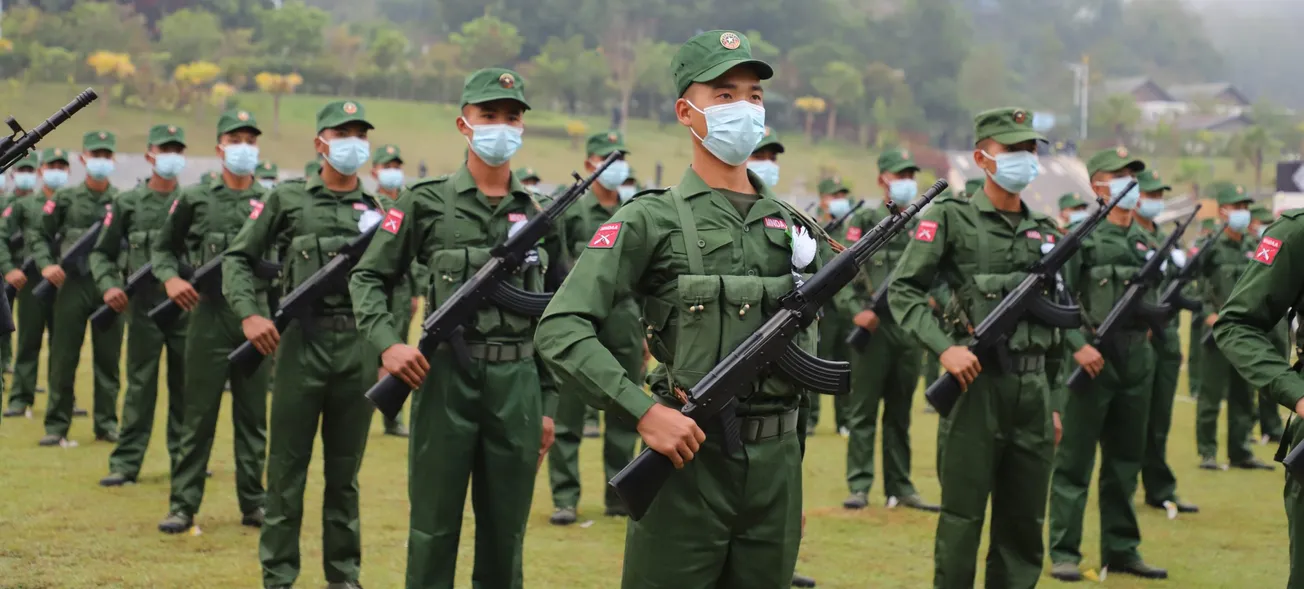Overview
Al-Qaeda in the Arabian Peninsula (AQAP) is the Yemen-based branch of al-Qaeda, established in 2009 through the merger of al-Qaeda's Saudi and Yemeni operations. AQAP is widely considered one of the most dangerous al-Qaeda affiliates, known for its operational capabilities, innovative tactics, and attempts to strike Western targets. The group adheres to a Salafi-jihadist ideology, seeking to replace what it views as apostate regimes with an Islamic caliphate governed by its interpretation of sharia law.
As of early 2025, AQAP remains a significant threat in Yemen and the broader region, despite facing numerous challenges in recent years. The group has demonstrated remarkable resilience, adapting to changing circumstances and maintaining a presence in parts of Yemen, particularly in Abyan and Shabwa governorates. AQAP's ability to exploit local grievances, its sophisticated media operations, and its continued focus on attacking Western interests make it a persistent concern for counterterrorism efforts.
History
- Formation and Early Years (2009-2011): AQAP was officially formed in January 2009 through the merger of al-Qaeda's Saudi and Yemeni branches. This followed the relocation of the Saudi branch to Yemen in 2006 due to intense pressure from Saudi security forces. The group quickly gained notoriety, attempting high-profile attacks such as the failed assassination of Saudi Prince Muhammad bin Nayef in August 2009 and the attempted bombing of Northwest Airlines Flight 253 on Christmas Day 2009.
- Territorial Control and Expansion (2011-2016): Taking advantage of the political instability following the 2011 Yemeni Revolution, AQAP seized significant territory in southern Yemen. In 2011, the group declared an Islamic emirate in Abyan governorate. AQAP reached its territorial peak in 2015-2016, controlling much of the southern Hadramawt governorate, including its capital, Mukalla, and establishing a presence across multiple fronts in the Yemeni civil war.
- Setbacks and Adaptation (2016-2022): In 2016, AQAP faced significant setbacks as UAE-backed Yemeni forces recaptured Mukalla and other areas under its control. The group also endured sustained U.S. drone strikes and confrontations with the Islamic State's Yemen branch. This period forced AQAP into a phase of retrenchment, focusing on survival and maintaining its core capabilities.
- Recent Developments (2022-2025): Since late 2022, AQAP has shown signs of resurgence, resuming regular operational claims. The group has shifted its focus to targeting UAE-backed forces affiliated with the Southern Transitional Council (STC), framing these attacks as combating Western allies in the region. In March 2024, AQAP announced the death of its leader, Khalid Batarfi, and the appointment of Sa'ad bin Atef al-Awlaki as his successor, marking a new phase in the group's leadership.
Key Characteristics
- Ideological Foundation: AQAP adheres to a Salafi-jihadist ideology, seeking to establish an Islamic caliphate and expel Western influence from the Muslim world.
- Resilience and Adaptability: The group has demonstrated a remarkable ability to survive leadership losses, military defeats, and changing political landscapes.
- Local Integration: AQAP has shown skill in exploiting local grievances and integrating into Yemeni tribal structures, enhancing its survival and operational capabilities.
- Media and Propaganda: The group maintains sophisticated media operations, including the publication of its English-language magazine "Inspire," aimed at radicalizing and recruiting Western audiences.
- Focus on External Operations: Unlike some other al-Qaeda affiliates, AQAP has consistently attempted to carry out attacks against Western targets, both regionally and internationally.
- Economic Activities: AQAP has developed significant economic interests, including involvement in smuggling, extortion, and control of local resources to finance its operations.
- Strategic Patience: The group has demonstrated a willingness to play a long game, focusing on gradual expansion and consolidation of influence rather than rapid territorial gains.
Key People/Actors
- Sa'ad bin Atef al-Awlaki: Current leader of AQAP as of March 2024. He has direct ties to former al-Qaeda leader Osama bin Laden and originates from the same tribe as former al-Qaeda spiritual leader Anwar al-Awlaki.
- Khalid Batarfi: Former leader of AQAP from 2020 until his death in 2024. He played a significant role in the group's operations and strategy during a challenging period.
- Qasim al-Raymi: Led AQAP from 2015 to 2020. He was killed in a U.S. drone strike in January 2020.
- Nasir al-Wuhayshi: AQAP's first leader, who played a crucial role in establishing the group. He was killed in a U.S. drone strike in 2015.
Key Capabilities and Tactics
- Bomb-making Expertise: AQAP is known for its advanced bomb-making capabilities, including developing innovative concealment methods for explosive devices.
- Guerrilla Warfare: The group excels in hit-and-run tactics and ambushes, leveraging its knowledge of Yemen's difficult terrain.
- Assassination Campaigns: AQAP has conducted targeted killings of government officials, security personnel, and perceived enemies.
- Complex Attacks: The group has demonstrated the ability to carry out sophisticated, multi-pronged attacks on military and civilian targets.
- Kidnapping and Extortion: AQAP uses kidnapping for ransom as both a tactic and a source of funding.
- Media and Cyber Operations: The group maintains a sophisticated media wing, producing high-quality propaganda materials and attempting to radicalize individuals online.
- External Operations: AQAP has attempted several high-profile attacks against Western targets, including airline plots and the 2015 Charlie Hebdo attack in Paris.
- Recruitment and Training: The group has established training camps in Yemen and has successfully recruited both locally and internationally.
Outlook
As of early 2025, AQAP's position in Yemen and the broader regional context presents a complex picture:
- Persistent Threat: Despite setbacks, AQAP remains a significant security concern in Yemen, particularly in its southern governorates. The group's resilience and adaptability suggest it will continue to pose a threat in the foreseeable future.
- Leadership Transition: The recent change in leadership, with Sa'ad bin Atef al-Awlaki taking command, may lead to shifts in the group's strategy or operational focus. Al-Awlaki's extensive background in the terrorist network could potentially unify AQAP's factions.
- Regional Dynamics: The ongoing conflict in Yemen and the complex interplay of local, regional, and international actors continue to provide AQAP with opportunities to exploit instability and grievances.
- Focus on Southern Yemen: AQAP's recent concentration of activities in Abyan and Shabwa governorates, particularly targeting STC-affiliated forces, indicates a strategic shift that may persist in the near term.
- External Operations: While AQAP's capability to conduct large-scale external attacks may be diminished, the group's historical focus on targeting Western interests suggests it will likely continue to attempt such operations.
- Ideological Influence: The potential influence of Saif al-Adel, allegedly the current leader of al-Qaeda central, on AQAP's strategy could lead to a renewed emphasis on targeting Western interests and a possible de-escalation of conflict with the Houthis.
- Counterterrorism Challenges: The complex political and security landscape in Yemen continues to complicate counterterrorism efforts against AQAP, potentially allowing the group space to regroup and rebuild.
- Economic Factors: AQAP's involvement in local economies and illicit activities provides it with resources to sustain operations, even in the face of military pressure.
While AQAP has been significantly weakened compared to its peak in 2015-2016, it remains a persistent and adaptable threat. The group's ability to exploit local grievances, its sophisticated propaganda apparatus, and its continued focus on external operations make it an enduring concern for both regional stability and international security. Addressing the AQAP threat will require a comprehensive approach that combines targeted counterterrorism operations with efforts to address the underlying political, economic, and social conditions that the group exploits for recruitment and support.










